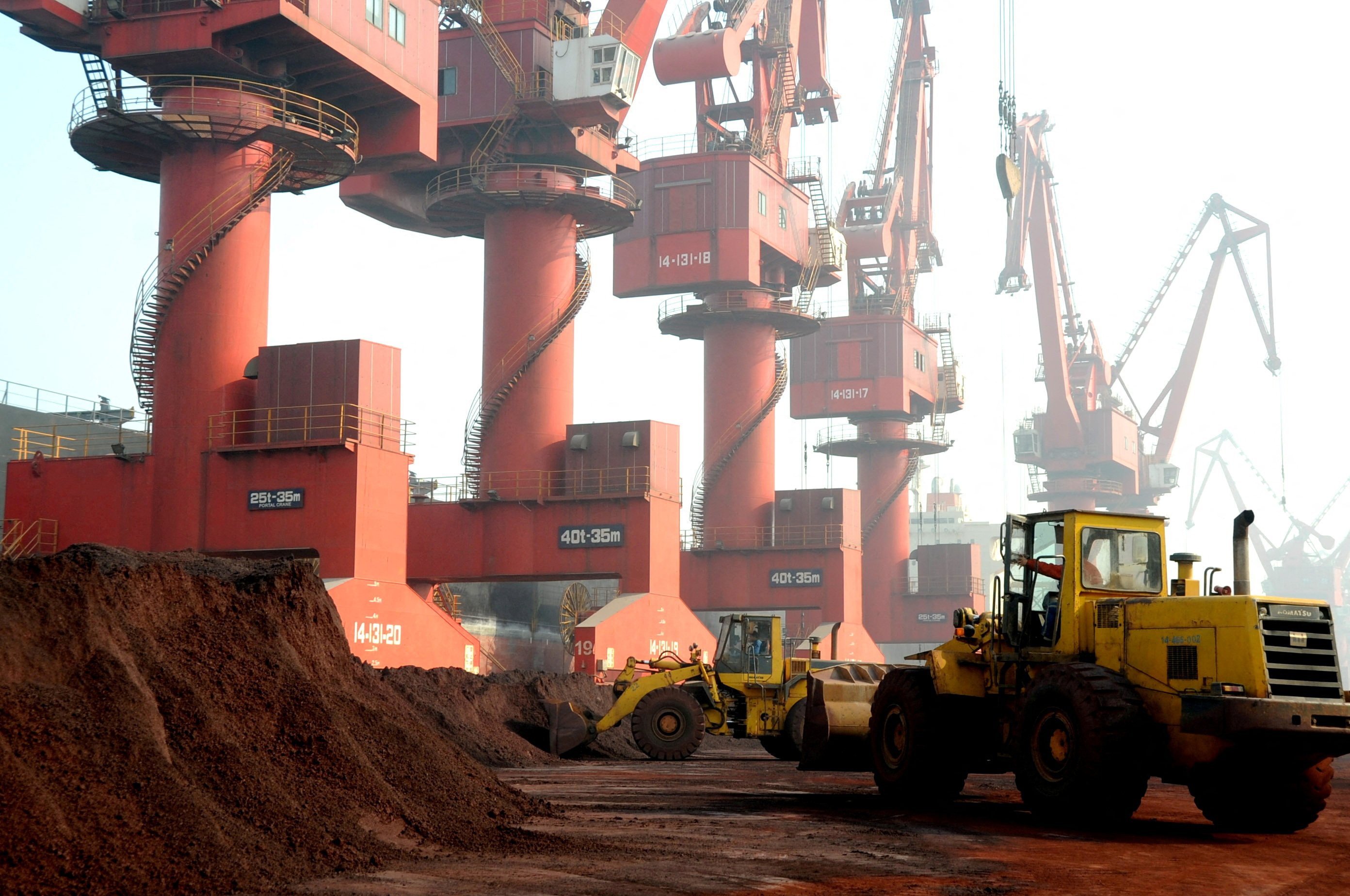A month out from a crunch summit between Chinese President Xi Jinping and the leaders of the European Union, senior EU officials have landed on an unsavoury term to describe their trade ties with China: “the stinking fish.”
The analogy, used when briefing member state diplomats on progress in trade talks with China, refers to the European Commission’s frustration that each of its top demands from Beijing is around the removal of measures that were introduced to punish Europe or the US.
Brussels wants China to permanently remove requirements for licences to export rare earth elements and magnets put in place to punish the United States, but which caught European firms in the crossfire.
It is also asking for the removal of Chinese tariffs on EU brandy imports, slapped in place as punishment for Brussels’ own duties on electric vehicles, and to end retaliatory probes on dairy and pork products.
“You put a stinking fish on the table, and then you want me to pay you to take it away,” was how one of multiple diplomatic sources explained it this week when describing how the EC has framed testy ties with Beijing.
In Brussels and beyond, the stinking fish is beginning to catch on.
The phrase helps to explain the parlous nature of the trading relationship, which halfway through the year feels a million miles from the softer words exchanged as recently as February, when Brussels was cowering from the return of US President Donald Trump.
It also shows how far expectations have fallen ahead of a summit previously seen as an opportunity to cement some progress in the relationship between Beijing and Brussels after years of tumult.
The EU’s leaders – European Commission President Ursula von der Leyen, European Council President Antonio Costa and top diplomat Kaja Kallas – decided to fly to China for the meeting, even though it was Europe’s turn to host.
Announcement of the decision came after von der Leyen twice said in speeches that the bloc could deepen trade and investment ties with China – a dramatic shift from an avowed hawk.
The belief was that to get China to change, it would be essential to speak to Xi.
But faith in that logic is wavering, after months in which the EU leadership believes Beijing has effectively declined their offer to patch things up by offering few concessions. In recent weeks, things have turned sour again.
The EU has all but banned Chinese medical device firms from its giant markets in the first use of its international procurement instrument. It also pulled the plug on trade talks that would have been used to agree on the summit’s deliverables, reflecting a belief that there may not be any at all.
Meanwhile, China is seen to have weaponised its rare earths supply dominance through the use of export restrictions – loosened recently for European firms, but which remain arduous.
According to business sources, their applications can be lost in the system and passed between government departments. Some licences are being issued, but the going is slow, they said.
At the G7 this month, von der Leyen said that “we all witnessed the cost and consequences of China’s coercion through export restrictions”. Even if there were “signals” that the export limits were loosening, “the threat remains”, she added.
The saga has eroded any goodwill that Beijing banked from lifting some sanctions on EU lawmakers and further dented Europe’s trust.
“If we ever needed a business case for de-risking, China is giving it to us right now,” said Eva Valle Lagares, the top EU trade official for China, during a webinar on Thursday.
The frustration is not just felt in Europe – China seems fed up too. An editorial last week in the state-owned nationalistic newspaper Global Times said that extensive diplomatic engagement from Beijing had failed to stop the relationship from falling off another cliff.
The article pointed to the medical devices investigation, Czech government accusations of a Chinese state-backed cyberattack, as well as a “so-called lobbying scandal related to Huawei”.
The company stands accused of bribing members of the European Parliament to espouse friendly views, with the editorial suggesting that dark forces were at play to prevent a rapprochement.
“Some in Europe mistakenly believe China, under pressure from the US, is seeking favours from Europe. Some even fantasise that by taking a tougher stance on China, they can force China into making unilateral concessions to the EU,” it said.
“If these people think they have secretly picked up the US’ ‘art of the deal’ and are feeling complacent, they are undoubtedly gravely misjudging both themselves and China,” the editorial continued.
“It is particularly staggering in the context of Trump’s threats of high tariffs, some in the EU are following Washington’s lead in the trade arena. Europe is itself a victim of trade protectionism and, overall, has shown courage in resisting tariff blackmail.”
Noah Barkin, an EU-China analyst at the Rhodium Group research house, said there was little hope of a breakthrough next month.
“China is not going to change its economic model because it’s having a summit with the EU,” he told a German Marshall Fund of the United States webinar.
“There’s a lot of stinking fish on the table,” Barkin added, noting that the phrase has been deployed often by Sabine Weyand, the commission’s top trade official. “China could do something – it could give Europe a few crumbs, that’s possible,” he continued.
If crumbs are all that are on the table at the big summit next month, neither side will leave satisfied.
